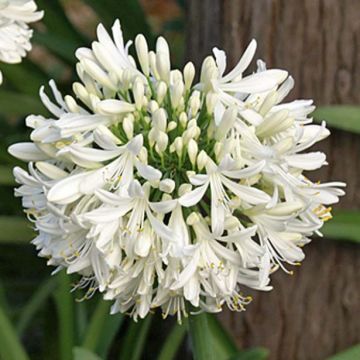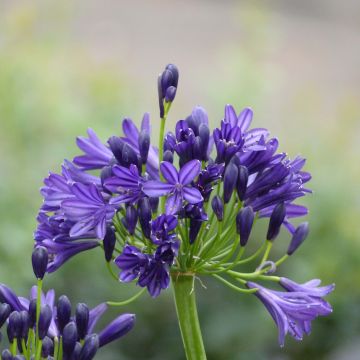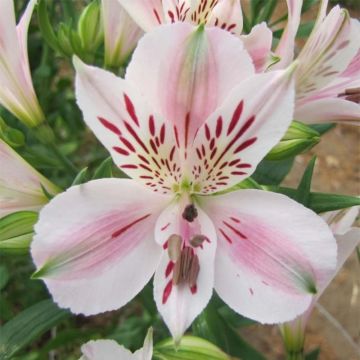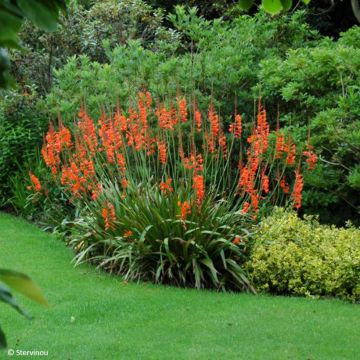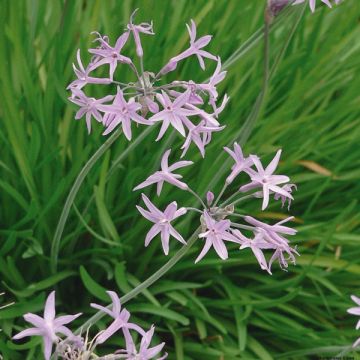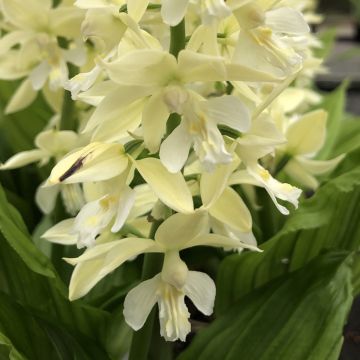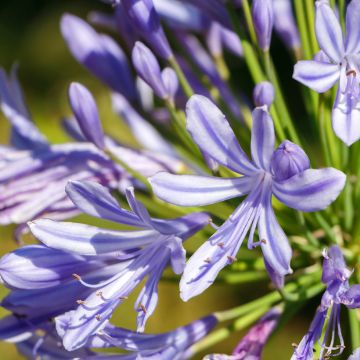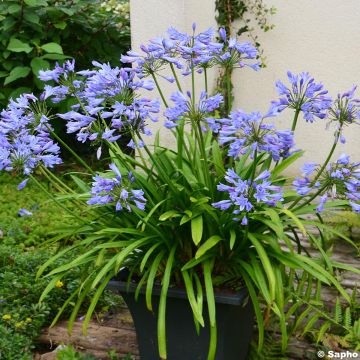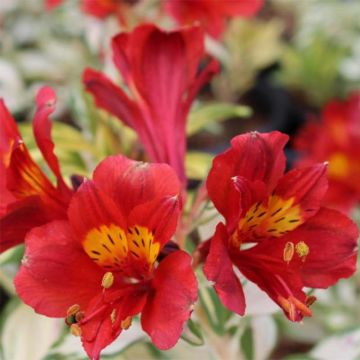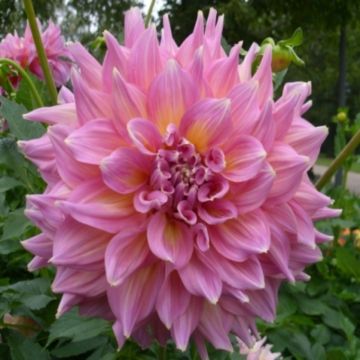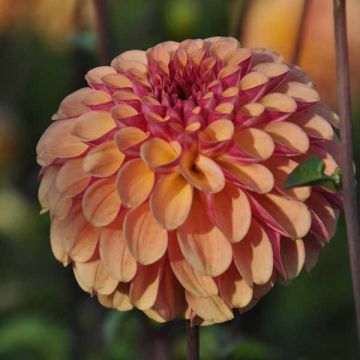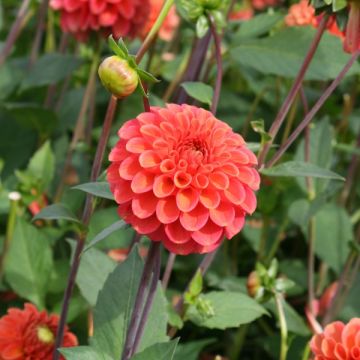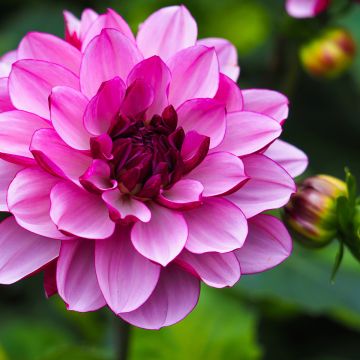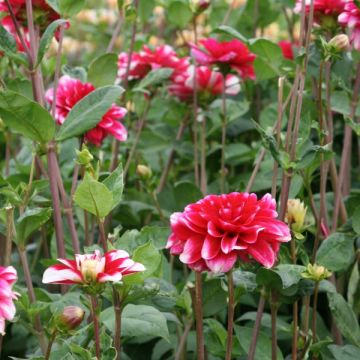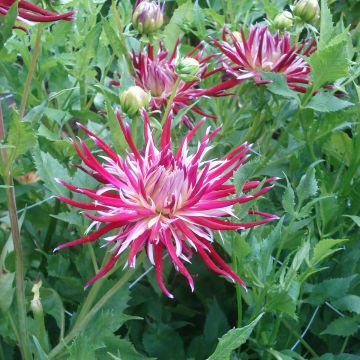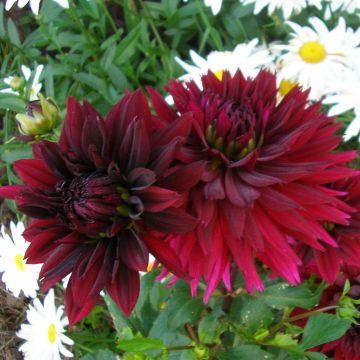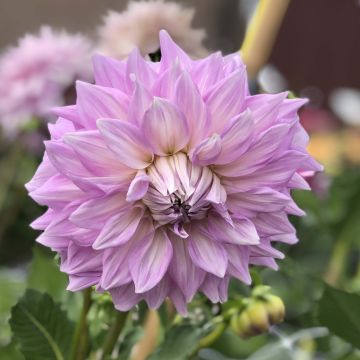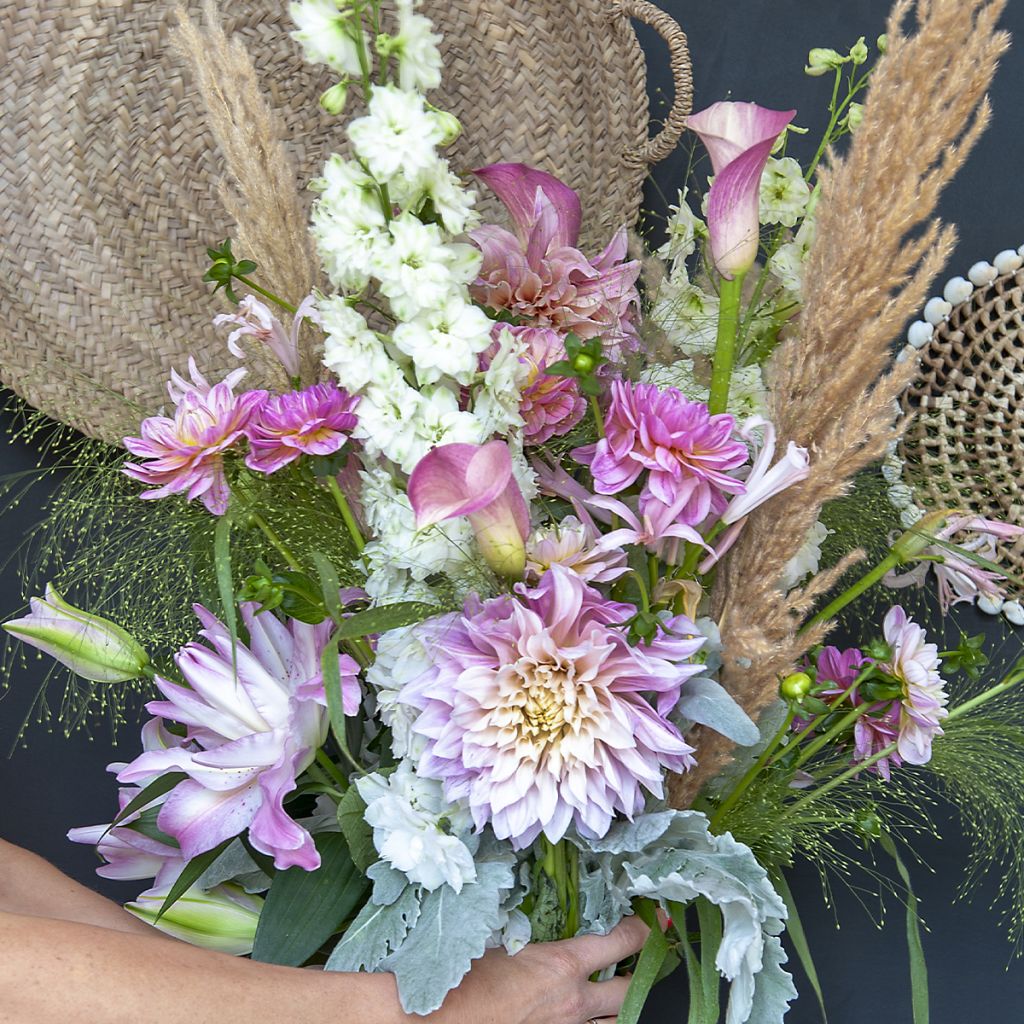

Collection Bulbes pour bouquets champêtres pastel
Bulb Collection for Pastel Wildflower Cut Flower Bouquets
Dahlias Café au Lait rosé et Onesta, Zantedeschia Crystal Blush, Lilium Broken Heart
Special offer!
Receive a €20 voucher for any order over €90 (excluding delivery costs, credit notes, and plastic-free options)!
1- Add your favorite plants to your cart.
2- Once you have reached €90, confirm your order (you can even choose the delivery date!).
3- As soon as your order is shipped, you will receive an email containing your voucher code, valid for 3 months (90 days).
Your voucher is unique and can only be used once, for any order with a minimum value of €20, excluding delivery costs.
Can be combined with other current offers, non-divisible and non-refundable.
Home or relay delivery (depending on size and destination)
Schedule delivery date,
and select date in basket
This plant carries a 6 months recovery warranty
More information
We guarantee the quality of our plants for a full growing cycle, and will replace at our expense any plant that fails to recover under normal climatic and planting conditions.
Would this plant suit my garden?
Set up your Plantfit profile →
Description
A collection of 8 bulbs combining dahlias, florist's arum, and double Asian lilies. Their pastel flowerings, dominated by pink, with very different shapes and textures, allow for the creation of various bouquets in a rural or romantic style. The lilies will bring their beautiful fragrance to each display. The flowering period extends from June to October: the arum open the show in June, followed by dahlia and lilies in July. You can continue to enjoy the dahlia As long as there are no frosts.
This collection consists of:
-1 x Giant Dahlia 'Café-au-Lait Pink': very double and enormous flowers, sometimes reaching 25 cm in diameter. They bloom in a very soft colour, ranging from cream to pale pink. The stems of this dahlia can reach a height of 1.20 m. Flowering from July to October.
-1 x Decorative Dahlia Onesta: this variety forms a large camellia-like flower of a dark intense lavender pink colour that is both warm and bright. It is a relatively low-growing plant, with stems reaching 70 cm. Flowering from July to October.
-3 x Zantedeschia Crystal Blush: a particularly elegant and irresistible variety of florist's arum, which will make a big impression in a vase, as well as in a pot in a refined contemporary interior. Its white cone-shaped flowers are delicately edged with pink. Height of the floral stem: between 50 and 60 cm. Flowering from June to August.
-3 x Lilium Broken Heart: an Asian lily that offers 18-20 cm-long double or even triple flowers, with a nuanced candy pink shade with white undertones, highlighted by a beautiful blood-red median and speckled with purple towards the throat. Each floral stem bears up to 10 highly fragrant flowers. Height: 80-90 cm. Flowering in July-August.
To encourage repeat flowering, take care to remove faded flowers, or even better, regularly cut the flowers to make large bouquets by combining them with other varieties. With their pastel-coloured blooms in shades of pink, the bulbs that make up this collection combine well with both rural and more sophisticated flowers. Consider white, mauve, or blue delphinia, the plumes of ornamental grasses, daisies, or statice, for example. At the end of summer, enjoy asters, amaranths, and roses to accompany the dahlias. Echinaceas. They can also enhance cut flower bouquets until late in the season.
Report an error about the product description
Plant habit
Flowering
Foliage
Botanical data
Dahlias Café au Lait rosé et Onesta, Zantedeschia Crystal Blush, Lilium Broken Heart
Cultivar or hybrid
Other Summer bulbs A to Z
View all →Planting and care
Plant your bulbs in the spring, in deeply worked and enriched soil, for example with crushed horn or dehydrated blood. Place your bulbs and tubers at the recommended depth for each variety. Crumble the soil well to fill in without any air pockets. Water regularly during the first 6 weeks to aid rooting.
- Plant your Calla Crystal Blush bulbs in March or April, at a depth of 12 cm, spaced 15 cm apart, in rich, slightly moist soil, in full sun or partial shade. You can also grow them in large pots, ensuring they are watered very regulary to keep the soil moist, and are given fertiliser every 2 months during growth. Mulch them at the first cold weather, as they are sensitive to winter damp and severe frosts, and are only moderately hardy in central Europe. If grown in pots, store them during the winter. You can cut the foliage after the first frost.
- The 'Broken Heart' lily prefers humus-rich, fertile, well-drained and light soil. Plant it in full sun, preferably in spring, burying the bulbs 15 cm deep in soil mixed with leaf compost. Placing them in a pouch of sand will protect them from slugs. Mark the planting location, as growth only starts in April. When the stems reach 30 cm in height, discreetly stake them. If red insects appear, treat them immediately, as they are lily beetles whose larvae can devour all the leaves. The most effective method is to catch them manually, but be careful, they drop as soon as they are touched, so put a box underneath. After flowering, it is recommended to cut the faded flowers stems halfway down to keep the bed beautiful during the summer.
- Dahlia are sensitive to cold and need to be overwintered. In November, the first frosts will blacken the foliage, which is the time to dig them up. Carefully remove the tubers. Remove as much soil as possible. Let the foliage dry so that the tuber can replenish its reserves. When the foliage is dry, cut the stems down to 10 cm from the tuber. Spread your bulbs in a box on newspaper. Store in a frost-free, dry, cool, and dark place.
Planting period
Intended location
Care
This item has not been reviewed yet - be the first to leave a review about it.
Similar products
Haven't found what you were looking for?
Hardiness is the lowest winter temperature a plant can endure without suffering serious damage or even dying. However, hardiness is affected by location (a sheltered area, such as a patio), protection (winter cover) and soil type (hardiness is improved by well-drained soil).

Photo Sharing Terms & Conditions
In order to encourage gardeners to interact and share their experiences, Promesse de fleurs offers various media enabling content to be uploaded onto its Site - in particular via the ‘Photo sharing’ module.
The User agrees to refrain from:
- Posting any content that is illegal, prejudicial, insulting, racist, inciteful to hatred, revisionist, contrary to public decency, that infringes on privacy or on the privacy rights of third parties, in particular the publicity rights of persons and goods, intellectual property rights, or the right to privacy.
- Submitting content on behalf of a third party;
- Impersonate the identity of a third party and/or publish any personal information about a third party;
In general, the User undertakes to refrain from any unethical behaviour.
All Content (in particular text, comments, files, images, photos, videos, creative works, etc.), which may be subject to property or intellectual property rights, image or other private rights, shall remain the property of the User, subject to the limited rights granted by the terms of the licence granted by Promesse de fleurs as stated below. Users are at liberty to publish or not to publish such Content on the Site, notably via the ‘Photo Sharing’ facility, and accept that this Content shall be made public and freely accessible, notably on the Internet.
Users further acknowledge, undertake to have ,and guarantee that they hold all necessary rights and permissions to publish such material on the Site, in particular with regard to the legislation in force pertaining to any privacy, property, intellectual property, image, or contractual rights, or rights of any other nature. By publishing such Content on the Site, Users acknowledge accepting full liability as publishers of the Content within the meaning of the law, and grant Promesse de fleurs, free of charge, an inclusive, worldwide licence for the said Content for the entire duration of its publication, including all reproduction, representation, up/downloading, displaying, performing, transmission, and storage rights.
Users also grant permission for their name to be linked to the Content and accept that this link may not always be made available.
By engaging in posting material, Users consent to their Content becoming automatically accessible on the Internet, in particular on other sites and/or blogs and/or web pages of the Promesse de fleurs site, including in particular social pages and the Promesse de fleurs catalogue.
Users may secure the removal of entrusted content free of charge by issuing a simple request via our contact form.
The flowering period indicated on our website applies to countries and regions located in USDA zone 8 (France, the United Kingdom, Ireland, the Netherlands, etc.)
It will vary according to where you live:
- In zones 9 to 10 (Italy, Spain, Greece, etc.), flowering will occur about 2 to 4 weeks earlier.
- In zones 6 to 7 (Germany, Poland, Slovenia, and lower mountainous regions), flowering will be delayed by 2 to 3 weeks.
- In zone 5 (Central Europe, Scandinavia), blooming will be delayed by 3 to 5 weeks.
In temperate climates, pruning of spring-flowering shrubs (forsythia, spireas, etc.) should be done just after flowering.
Pruning of summer-flowering shrubs (Indian Lilac, Perovskia, etc.) can be done in winter or spring.
In cold regions as well as with frost-sensitive plants, avoid pruning too early when severe frosts may still occur.
The planting period indicated on our website applies to countries and regions located in USDA zone 8 (France, United Kingdom, Ireland, Netherlands).
It will vary according to where you live:
- In Mediterranean zones (Marseille, Madrid, Milan, etc.), autumn and winter are the best planting periods.
- In continental zones (Strasbourg, Munich, Vienna, etc.), delay planting by 2 to 3 weeks in spring and bring it forward by 2 to 4 weeks in autumn.
- In mountainous regions (the Alps, Pyrenees, Carpathians, etc.), it is best to plant in late spring (May-June) or late summer (August-September).
The harvesting period indicated on our website applies to countries and regions in USDA zone 8 (France, England, Ireland, the Netherlands).
In colder areas (Scandinavia, Poland, Austria...) fruit and vegetable harvests are likely to be delayed by 3-4 weeks.
In warmer areas (Italy, Spain, Greece, etc.), harvesting will probably take place earlier, depending on weather conditions.
The sowing periods indicated on our website apply to countries and regions within USDA Zone 8 (France, UK, Ireland, Netherlands).
In colder areas (Scandinavia, Poland, Austria...), delay any outdoor sowing by 3-4 weeks, or sow under glass.
In warmer climes (Italy, Spain, Greece, etc.), bring outdoor sowing forward by a few weeks.






























